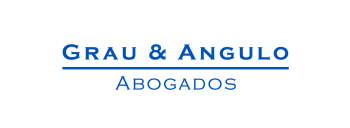Introduction
Facts
Earlier decisions
Supreme Court decision
Comment
On 3 April 2019 the Supreme Court rejected the extraordinary appeals filed by Pfizer against a Barcelona Court of Appeal judgment, confirming the dismissal of a patent infringement action against sildenafil generics competitors in Spain.
This decision represents the end of a long battle regarding the interpretation of Articles 27 and 70 of the Agreement on Trade-Related Aspects of Intellectual Property Rights (TRIPS Agreement) and the alleged impact on the former prohibition on patent chemical and pharmaceutical products as such, which was in force in Spain until 7 October 1992.
Pfizer was the owner of European Patent 0463756 (EP'756), which was filed in June 1991 and granted in April 1995. The patent had three sets of claims, one of which was specific to process claims in Spain. The Spanish translation of the patent was published in July 1995.
In 2002 Pfizer obtained a supplementary protection certificate (SPC), which entered into force when the patent expired in June 2011 and lasted until June 2013.
In March 2006 Pfizer filed a revised translation of EP'756 with the Spanish Patent Office (ESPTO), which included product claims. The ESPTO refused to publish the revised translation and Pfizer brought the case to the contentious administrative courts. Finally, in November 2010 the Contentious Administrative Chamber of the Supreme Court annulled the ESPTO's decision and ordered the publication of the revised translation of the patent, which was made in August 2011 (ie, after the patent had expired and the SPC had entered into force).
In October 2011 Pfizer sued all of the companies that were marketing sildenafil generics in Spain, alleging infringement of the patent and the SPC based on the product claims of the revised translation. Some of these generics had been on the market since late 2009 and early 2010.
On 28 October 2014 Barcelona Commercial Court Number 7 dismissed the infringement action following a decision of the Barcelona Court of Appeal just some days earlier in a similar case (escitalopram). In that decision, the Barcelona Court of Appeal had:
- examined European Court of Justice (ECJ) case law from July 2013 (levofloxacin) and January 2014 (atorvastatin) on the correct interpretation of Article 70 of the TRIPS Agreement; and
- ruled that the scope of patents with process claims only for Spain could not be subsequently broadened through the addition of product claims through revised translations.
On 20 July 2016 the Barcelona Court of Appeal confirmed the previous decision of Barcelona Commercial Court Number 7 in the sildenafil case.
On 3 April 2019 the Supreme Court directly refused to admit Pfizer's extraordinary appeals. It therefore rejected them without further prosecution or an assessment of their substantive grounds. Further, it dismissed Pfizer's request for a referral to the ECJ.
In this regard, the Supreme Court considered that the ECJ case law was clear and that the previous judgment of the Barcelona Court of Appeal was consistent in this regard.
In this way, the Supreme Court has reaffirmed its previous decisions in analogous cases of 21 December 2015 (quetiapine) and 20 October 2017 (escitalopram), in which it had already acknowledged that the ECJ judgments regarding Article 70 of the TRIPS Agreement contradicted and superseded Supreme Court case law from 2010 to 2012, which had interpreted this provision too broadly. On this basis, the Supreme Court had wrongly acknowledged the efficacy of pharmaceutical product patents, despite the former prohibition on patent chemicals and pharmaceuticals.
This is the first time that the Supreme Court has directly refused to admit an extraordinary appeal in this type of case. As such, it has definitively resolved the issue in Spain.
For further information on this topic please contact Ana-Laura Morales at Grau & Angulo by telephone (+34 93 202 34 56) or email ([email protected]). The Grau & Angulo website can be accessed at www.ga-ip.com.



